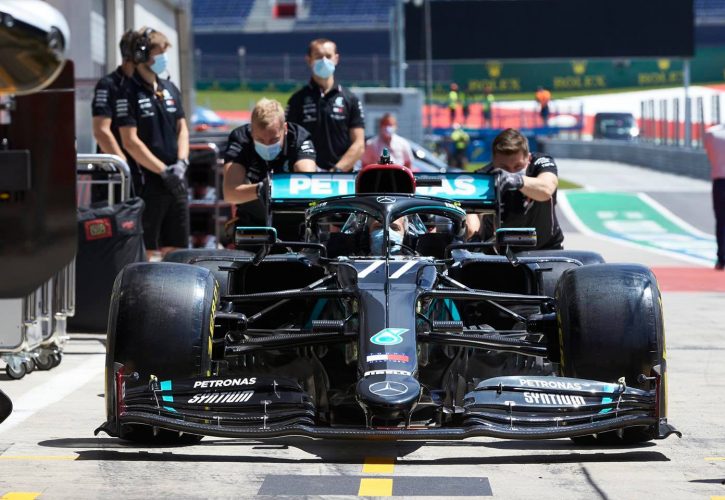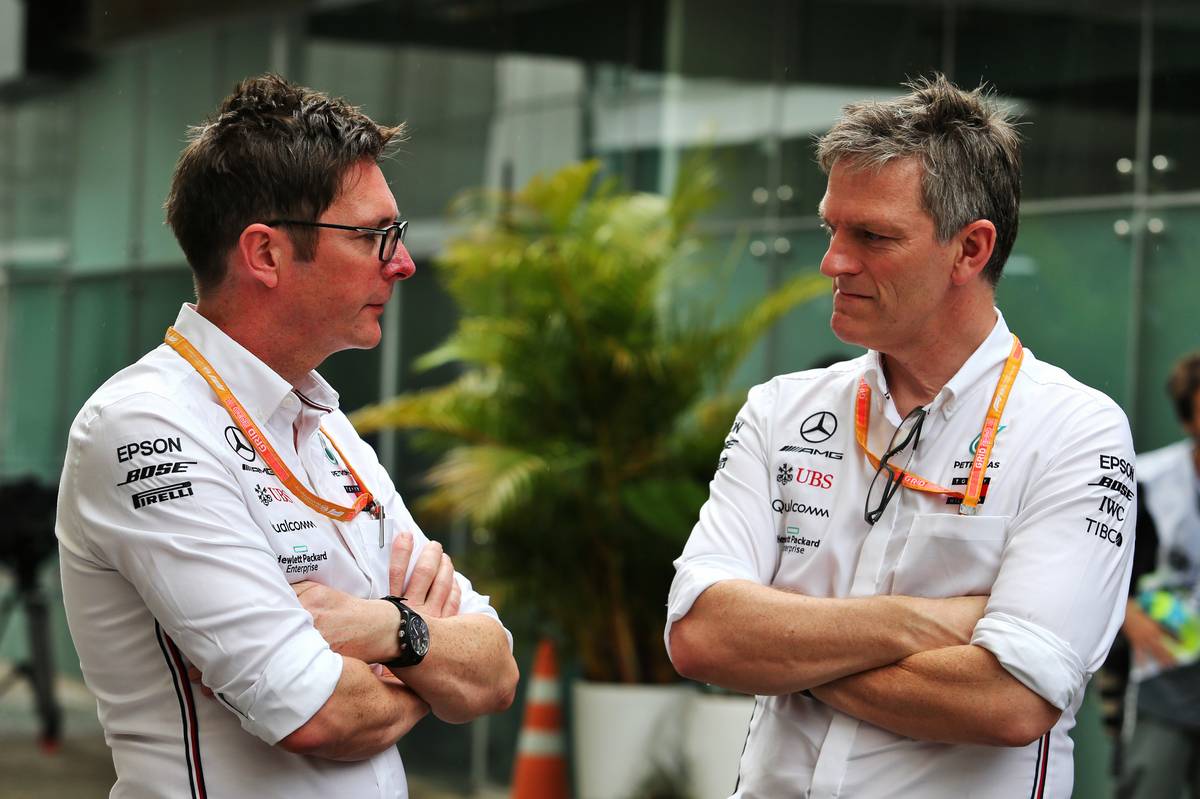
Mercedes says the gearbox woes that threatened the races of Valtteri Bottas and Lewis Hamilton in Austria were caused by an "electrical noise" issue that was well-known to the team.
Mercedes' Black Arrows looked set to run off into the distance at the outset of Sunday's race.
But as Bottas and Hamilton were building their commanding lead, the team's pitwall cautioned the pair, urging both drivers to steer clear of the Red Bull Ring's prominent kerbs, citing a gearbox problem.
Bottas eventually won the race while Hamilton finished fourth after receiving a five-second penalty for clashing with Red Bull's Alex Albon.
It was nevertheless a close call for the German squad, but one that did not surprise Mercedes trackside engineering director Andrew Shovlin who elaborated on the problem in the latest F1 Nation podcast.
"On Friday you saw that Valtteri had an issue at the end of one of the sessions so that was first a sign that we had a problem," Shovlin said.
"We’ve had recurrence issues over the course of Saturday and going into the race we were expecting it because it seems to be a feature of the model.µ
"So, at the moment if we build the car and run it this problem will appear at some point – it’s just a question of how soon.
"It’s not manifesting itself as one thing," he added. "It's basically a build-up of electrical noise that starts to interfere with the various systems, so with Valtteri we saw that halfway through the race, got progressively worse, with Lewis it appeared later.
"But it’s electrical noise that’s then affecting a lot of different things."

Shovlin said the topography and characteristics of the Red Bull Ring's layout only intensified the issue.
"Austria’s just a really horrible circuit for the cars," admitted the British engineer.
"Normally you start the season somewhere like Melbourne, and Melbourne’s a track where it’s very difficult to overtake, and when it’s difficult to overtake you can then afford to look after your car and people aren’t going to get by.
"This is a circuit where it’s quite easy to overtake and as a result if you don’t use the kerbs, if you don’t push hard, you’re at risk.

"That’s one of the factors, but it’s the kerbs themselves that are very, very violent and you spend a lot of the lap running on them.
"For us, that was that issue and it probably doesn’t help that it’s nearly 30 degrees here, the air’s a bit thin so it’s hot, there isn’t as much cooling as you normally get, and all the temperatures inside the car are high."
Mercedes boss Toto Wolff said his team was working hard this week to try and solve r at least minimize the issue for next weekend's Styrian Grand Prix.
"What I understand is that there are solutions that we can at least improve the situation," said Wolff.
"Austria is for sure stressing these parts on the car most in all of the season. So if we find a way around of protecting the car next weekend, we should be fine. I think we have ideas."
Gallery: The beautiful wives and girlfriends of F1 drivers
Keep up to date with all the F1 news via Facebook and Twitter







